-
 Art of Wellness Acupuncture & Traditional Chinese Medicine (TCM)11704 Wilshire Blvd, Suite 295, Los Angeles, CA, 90025
Art of Wellness Acupuncture & Traditional Chinese Medicine (TCM)11704 Wilshire Blvd, Suite 295, Los Angeles, CA, 90025
myartofwellness@gmail.com310-451-5522 Office Hours
MonClosedTue7:30 am --4 pmWed7:30 am --4 pmThu7:30 am -- 4 pmFri7:30 am -- 4 pmSat7:30 am -- 4 pmSunClosedOur office opens from Tuesdays to Saturdays 7:30 am to 4 pm, will be closed on Memorial day, Independent day, Labor day, Thanksgiving day, Christmas and New year.
-
Recent Posts
- How to Treat Turf Toe With Acupuncture
- How to Treat Nerve Pain With Acupuncture and TCM
- How to Treat Watery Eyes With Acupuncture and TCM
- How to Treat Ovarian Cysts With Acupuncture and TCM
- How to Treat Dystonia With Acupuncture and TCM
- Can Acupuncture Help Bad Breath?
- How to Treat Atopy with Acupuncture and TCM
- Plantar Fasciosis Treatment With Acupuncture and TCM
- How to Protect Yourself When Air Quality Is Poor
- How to Treat Spinal Headache With Acupuncture and TCM
- How to Treat Sarcoidosis With Acupuncture and TCM
- How to Treat Flu With Acupuncture and TCM
- Chinese New Year 2025 Year of the Snake
- How to Treat Lumbar Stenosis With Acupuncture and TCM
- How to Treat Wrist Pain With Acupuncture and TCM
- How to Treat Cervical Radiculopathy With Acupuncture and TCM
- Sign up to receive news and updates and get my free report:“The Top 10 Reasons to Try Acupuncture”

Depression
How to Treat Depression With Acupuncture and TCM
By Qineng Tan, L.Ac, Ph.D. & Xiaomei Cai. L.Ac., Ph.D.
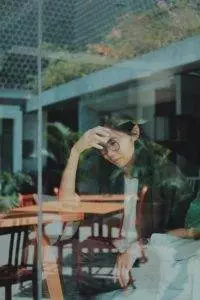
More than ever, people are struggling with feelings of sadness, anxiety, and isolation. Feeling empty or worried all the time, having difficulty concentrating, or even having thoughts of suicide are all possible symptoms of depression. Acupuncture has been shown to be effective for helping manage and overcome both low-grade depression and major depression.
Everyone feels worried, sad, or frustrated due to life situations and problems that come up periodically. But feeling persistently fatigued with heavy emotions for days, weeks, or months on end is a signal that a person might be clinically depressed, or in the throes of a depressive episode.
The current global pandemic is causing most of us to feel exhausted with worry over all kinds of issues: personal health, grief for loved ones who are alone, ill, or have passed, desperation over financial concerns, and feelings of being trapped or deeply pessimistic.
People who already had mental health problems, especially anxiety or depressive disorder, may feel like they have less support than ever, as they cannot see friends or family, and may not have access to meeting with a therapist online. People who have other chronic health conditions, like cancer or chronic pain, may be struggling even more than they normally would, feeling distanced from the care they need.
Everyone is dealing with tremendous stress right now, and we know that stress causes all kinds of health problems. Many people are already used to annual bouts of depression due to Seasonal Affective Disorder (SAD). Young people, most of whom have had to adapt to a wildly different form of learning this year, as well as being cut off from their friends, are even more prone to teen depression. Parents and caregivers are putting in extra hours, and may begin to feel helpless and hopeless in the face of this daily struggle. Truly, everyone is at risk for feeling situational depression in times like these.
Remember that treatment for depression is available, and if you are feeling despondent, it is in your best interest to reach out for help. Integrative care that includes different kinds of therapy may work for people who have not been able to find help for their depressive disorder. We are here at Art of Wellness to provide effective help for depression and chronic anxiety through acupuncture and TCM.
Signs of Depression
Many times people hide or deny their feelings of depression, even from themselves. It is important to recognize the signs and symptoms of depression so that if you or someone close to you if affected, you will be able to get help. Signs that someone is suffering from depression include:
- Changes in weight or appetite
- Changes in sleep habits
- Drug or alcohol abuse
- Difficulty concentrating
- Lack of interest in activities
- Fatigue, feeling tired all the time
- Angry, irritable all the time
- Loss of libido
- Backache, headache, or digestive problems
Signs of depression in teens and depression in women may cause other symptoms, similar to those of anxiety, like racing and intrusive thoughts, extreme sensitivity to criticism, or withdrawal from family and friends. Having trouble sleeping, or sleeping more than usual are potentially signs of depression, as are significant changes in a person’s eating habits, sudden weight loss or weight gain. Depression can also affect cognitive function and memory.
Top 10 Types of Depression

Depression is a mental health condition that is caused by combinations of different factors, and takes many forms in terms of symptoms and behaviors. Mental health professionals differentiate this condition into different types of depression, according to duration, severity, and specific kinds of behavior, emotional, and thought patterns:
-
Major Depression or Clinical Depression – is defined as an episode of sadness or loss of interest or pleasure in external stimuli one usually enjoys that lasts for more than two weeks.
-
Persistent Depressive Disorder or Dysthymia – this is a chronic mental illness characterized by a pessimistic outlook and sad mood that persists for years. In this case, people may have what is sometimes called “high functioning” depression. Even happy occasions do not bring them joy.
-
Manic Depression or Bipolar Disorder – this condition is marked by extreme changes in mood and energy. A person might, at times, feel so low that they have suicidal thoughts or lose touch with reality, then their mood may suddenly shift into high gear, and they seem to have boundless energy and confidence. These shifts may occur over short or long periods of time.
-
Postpartum Depression – colloquially known as the “baby blues,” many women experience a form of depression in the months after having given birth. This type of depression occurs because of sudden changes in hormones, and is often marked not only by fatigue and inexplicable feelings of sadness, but also feelings of anxiety, panic attacks, and disturbing thoughts.
-
Seasonal Affective Disorder (SAD) – this type of depression is relative to the time of year, that is, a person regularly goes through a recurrent period of fatigue and low mood, a sense of heaviness, and irritability, or difficulty getting along with other people. Most people with SAD experience it during the winter months, but it can actually happen at any time of year.
-
Psychotic Depression – this is a form of depression that is accompanied by a break with reality, including delusional or paranoid thoughts, and hallucinations.
-
Premenstrual Dysphoric Disorder (PMDD) – is an extreme form of premenstrual syndrome (PMS) that interferes with daily life during the 7-10 days preceding the period. It is characterized by severe depressed thoughts that can become suicidal in nature. Then, after the period, the symptoms disappear for a few weeks, until the premenstrual phase occurs again.
-
Atypical depression – in contrast to its moniker, this type of depression may be the most common. Atypical depression refers to a predictable pattern of depressive feelings and behaviors, including oversleeping, changes in eating habits, problems with relationships, that overtakes one for a while, then clears up when some kind of positive event occurs. This can turn into a pattern of depression that comes and goes over the years.
-
Situational depression – this type of depression occurs in reaction to some kind of inciting event, maybe one that causes trauma or loss, or simply a major life change like a move or job change. This is a way that some people will adjust to circumstances and stressors in life, and it usually clears up within six months or so after the triggering event.
-
Disruptive Mood Dysregulation Disorder (DMDD) – this is a disorder that occurs in childhood marked by chronic, extreme irritability and a struggle to handle negative emotions. Children with this order may regularly act out or have tantrums when facing frustration.
While some types of depression are considered more severe than others, it is important to keep in mind that all kinds of depression are real health conditions than can and should be addressed before they become even more serious.
Treatment for Depression
In Western medicine, depression is seen mostly as a chemical imbalance affecting hormones and/or neurotransmitters, primarily in the brain. Depression can be triggered by a highly emotional event or difficult circumstances, and then, the chemical imbalance continues to cause negative emotions and disordered thoughts. The conventional medical solution for most forms of depression is a combination of psychotherapy, also known as talk therapy, and prescription medication, in the form of antidepressants or anti-anxiety medications.
Modern psychotherapy aims to help people with depression through the practice of coping skills, problem-solving around relationship issues, and resolving negative emotions.
Different types of antidepressant medication include selective serotonin reuptake inhibitors (SSRIs such as Zoloft, Lexapro, Prozac, Paxil, and Celexa), which affect the way the hormone serotonin is produced and absorbed by the brain cells, and serotonin and norepinephrine reuptake inhibitors (SNRIs like Effexor, Cymbalta, and Pristiq), which influence norepinephrine production, as well. All of these medicines basically work by allowing the brain to have more “good mood” chemicals available. Other, less commonly used medications include second-generation antipsychotics, such as Abilify, which are usually used to treat mental illnesses such as schizophrenia and bipolar disorder, but which are sometimes tried when other medications have not helped.
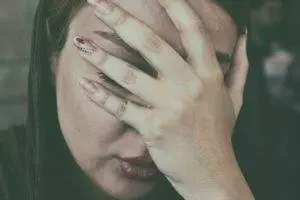
Many people feel that they benefit from the mood stabilisation these medications can provide. Generally, doctors recommend taking the medications for one to two years, to prevent relapses of the depressive symptoms. However, some people find that they have a hard time coming off of certain antidepressant medications, and unfortunately, there are many unpleasant side effects associated with these drugs.
More than half of the people who take antidepressants report side effects such as:
- Headaches
- Dizziness, brain fog
- Weight gain
- Dry mouth
- Restlessness, trouble sleeping, insomnia
- Sexual dysfunction, loss of libido
- Nausea, diarrhea, constipation, or trouble urinating
- Skin rashes or vision problems
In some cases, these side effects may seem manageable in relation to the severe depression they were feeling before, but for others, these problems compound their dissatisfaction with life. More serious side effects, like heart or liver problems can also occur, especially in older people, or because of interactions with other medications used to manage chronic conditions.
Some research studies have shown that acupuncture treatment can be used as an effective alternative to antidepressant medications, or as an adjunct that helps to offset some of the unwanted side effects. This study showed, also, that patients felt an improvement in their mood and quality of life after only a few weeks of acupuncture treatment, whereas the patients taking antidepressants took longer to register the positive effects.
How Acupuncture Treats Depression
TCM takes a holistic view of health that makes it very effective for treating depression. Going back thousands of years, TCM philosophy has always acknowledged the fundamental connection between mental health and physical health. Emotions and thoughts are as integral to wellness as the proper functioning of the organ systems. Imbalances in organs can cause emotional problems, and vice versa. So, when an acupuncture practitioner addresses mental illness such as depression and anxiety, she is looking at the whole picture. While a medical doctor may see varied symptoms such as digestive trouble, headache, irritability, and trouble sleeping as disparate problems to be solved by different specialists, or treated with different medications, a TCM provider views all of these issues as being part of a particular pattern and treats that pattern as a whole.

According to TCM, depression is caused by stagnation, or blockages in the Qi (life force energy). It is usually related to stagnant energy in the liver, spleen, heart or kidneys. Liver Qi stagnation can cause strong feelings of frustration, stomach pain and digestive trouble, heartburn or tightness in the chest, and headaches. Heart or Spleen Deficiency patterns cause worrying, trouble sleeping, and poor appetite. Chronic cases of depression with anxiety are often related to Yin deficiency, which causes irritability, restlessness, poor sleep, and back pain. An acupuncturist looks at all of these symptoms and treats the appropriate pattern with acupuncture and herbs. Acupuncture will also help people by relieving stress, and helping to restore better sleep.
One study looked at patients diagnosed with minor depressive episodes and generalized anxiety. Patients who received ten acupuncture treatments showed significant improvement over those who did not.
A study designed to help show the effect of acupuncture on neural circuity and chemistry as it relates to depression combined acupuncture with antidepressants when treating women with major depressive disorder. The patients receiving both showed improved functional connectivity in the corticostriatal reward circuitry of the brain.
Another study showed that electro-acupuncture treatment has as positive an effect on norepinephrine levels as amitriptyline – a medication commonly prescribed to treat major depression disorder and anxiety disorders.
Can Acupuncture Help Depression During Pregnancy and Postpartum Depression?
Some forms of depression are specific to the area of women’s health. PMDD, pregnancy depression and anxiety, and postpartum depression can all be helped with acupuncture treatment, without the risk of side effects.
It is important, both for their own health and that of the expected baby, that women suffering from depression during pregnancy or in the postpartum period seek help. However, there are risks involved in taking medications during pregnancy. Antidepressant use has been linked to birth outcomes such as low birth weight and premature delivery. Acupuncture, which can provide innumerable benefits during pregnancy, is an option worth exploring to relieve symptoms of depression and anxiety during pregnancy.
Acupuncture Near Me for Depression
Depression can make it difficult to take action. Feelings of hopelessness and isolation can cause people to feel that they are beyond help. Stigma around mental health can cause people to hide their anxiety and extreme moods from others. But depression is a real and treatable illness. Whether you have been struggling with depression for a long time, or have just begun to feel worried about your mental health over the past several months, please do not hesitate to reach out to us at Art of Wellness. We are here to help you get past this depressed period and begin to feel hope and purpose again.
*This article is for education from the perspective of Traditional Chinese Medicine only. The education provided by this article is not approved by FDA to diagnose, prevent, treat and cure human diseases. It should not stop you from consulting with your physician for your medical conditions. Traditional Chinese Medicine is based on Qi, which is an invisible force that usually cannot be observed by modern science. Because science focuses on testing ideas about the natural world with evidence obtained through observation, these aspects of acupuncture can’t be studied by science. Therefore acupuncture and Chinese herbs are often not supported by double-blind, randomized trials, and they are considered alternative medicine therapies in the United States.
Acupuncture and TCM for Cancer – Integrative Oncology
By Dr. Qineng Tan, L.Ac., Ph.D. and Xiaomei Cai, L.Ac., Ph.D.
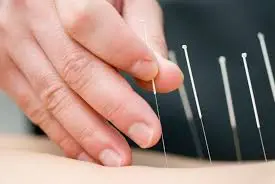
Until very recently, it seemed cancer was the one illness that had touched everyone’s life in some way. Cancer is the leading cause of death in the world. Almost 40% of the population will be diagnosed with some form of cancer at least once in their lives. We have all lost friends and relatives to this seemingly relentless form of disease. Doctors, scientists, researchers, and organizations have worked tirelessly in recent decades to develop life-saving treatments, and millions of people go on to live full lives as cancer survivors.
Cancer is a broad term that refers to the unchecked growth of abnormal cells in the body. When the body’s mechanisms for getting rid of old cells begins to break down, these damaged cells begin to divide, in some cases forming masses, or tumors. These types of cancer are usually classified by the organs affected by the tumor, including gynecological cancers such as breast cancer, ovarian cancer, cervical cancer, and endometrial cancer, as well as prostate cancer in men, lung cancer, cancers of the gastrointestinal tract (pancreatic, stomach, esophageal, colon, rectal), thyroid, brain, spine, bladder, liver, and kidneys. Carcinomas refer to cancers affecting the skin, and sarcomas to cancers affecting the musculoskeletal system. Hematological cancers involve the proliferation of abnormal blood cells, including leukemia, lymphomas and multiple myeloma.
Written records of Traditional Chinese Medicine detection and treatment of cancerous growths go back over 2000 years. In recent decades, TCM has become more recognized as a way to complement and enhance contemporary methods of treating cancer. Integrative Oncology, in which the latest technological and pharmacological advances are combined with Traditional Chinese Medicine techniques and philosophy, forms a holistic way of working with cancer patients.
Cancer Treatment Options

Cancer screening is a vital component of modern health care, as early detection offers the best chances for successful treatment. Data show that of the 18 million new cases detected in 2018, 5 million could have been discovered sooner and treated more effectively if we had higher rates of screening. Unfortunately, almost half of colorectal and cervical cancers and a third of breast cancers are not diagnosed until the disease is already in later stages, which makes them harder to treat.
When a cancerous growth is still localized, surgery and/or radiation treatment can remove or destroy much or all of the abnormal growth. When cancer has advanced to a later stage, and cells have spread through the body, then more systemic treatments are used, such as:
- chemotherapy, which uses cytotoxic drugs to kill tumor cells
- immunotherapy, a newer type of treatment, uses specifically designed synthetic antibodies to boost the body’s immune system.
- targeted therapy seeks to destroy the cancer cells without harming healthy tissues surrounding tumors.
New treatment options are constantly being researched and tested, giving patients a better chance at stopping the cancer in its tracks.
However, most cancer treatments themselves can cause serious side effects that dramatically impact quality of life. Positive outcomes also vitally depend on a person’s ability to strengthen the body’s immune system while fighting the disease, as well as coping with the severe emotional stresses involved. Research has shown that acupuncture can significantly mitigate side effects of chemotherapy, radiation treatments and other conventional methods of treating cancer.
Chemotherapy and radiation work by killing cancer cells. As these chemicals do not distinguish between normal and malignant cells, they can also damage surrounding tissues, creating more blockages. The synthetic drugs used also increase toxicity levels within the body. Acupuncture can help increase the production of white blood (immune) cells, detoxify the body and increase energy, so that the cancer can be eradicated, and new, healthy cells can flourish. Acupuncture can also improve sleep and relieve anxiety, so that hope and confidence can outweigh fears and exhaustion.
Acupuncture and TCM can be valuable for cancer patients throughout every stage of treatment, recovery and beyond, not only alleviating the pain and nausea associated with cancer treatments, but also boosting immune function, relieving anxiety and depression, and even helping to prevent the cancer from coming back.
How Can Acupuncture Help with Cancer Treatment?
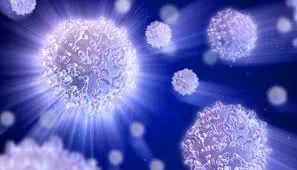
Acupuncture operates based on the philosophy that the body is powered by Qi – a life force energy – that runs along pathways throughout the body called meridians. Pain and diseases are caused by blockages in these pathways that prevent Qi and nutrient-rich blood from reaching and adequately supplying the organ systems of the body. When the body is balanced and functioning smoothly, the immune system is able to detect and eradicate pathogens on its own. Our bodies do this all the time. While genetic predisposition may increase some people’s cancer risk, the truth is everyone is susceptible to the formation of cancerous cells. When the body is healthy, it can sweep away mutated cells. But when the body is in a weakened state and energies are blocked, cancer cells are able to take hold, multiply, and grow.
Acupuncture can help relieve symptoms caused by the disease itself, as well as the side effects of treatment, including but not limited below:
- neuropathy
- pain
- nausea/vomiting
- dry mouth
- fatigue
- insomnia
- depression & anxiety
In addition to providing palliative care for these symptoms, acupuncture treatment works on a deeper level to strengthen Qi, revitalize blood, and restore healthy functioning to the organ systems. The combination of acupuncture treatment to stimulate specific points and herbs to act on chemical/elemental imbalances can approach the root cause of the abnormal cell growth.
Acupuncture for Cancer Treatment Side Effects
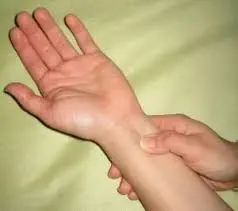
The most common side effects of cancer treatments such as chemotherapy, radiation, and immunotherapy are gastrointestinal in nature. Nausea, vomiting, abdominal pain, and diarrhea are caused by the medications involved, which may be administered intravenously or by mouth. The extent to which a patient feels nauseated depends on many factors: the location of the cancer being treated in the body, the dosage of the medications, the timing of administration, and a person’s prior susceptibility to nausea and vomiting. Treatment for tumors in the brain, liver, or gastrointestinal tract–such as esophageal, pancreatic, colon, or stomach cancers–is more likely to cause vomiting. Women, in general, are more likely to experience severe nausea. Antiemetic drugs or stomach acid-reducing medication like Esmeprazole can sometimes help with the nausea, but they don’t work in many cases. One controlled study showed that acupuncture given to patients undergoing chemotherapy reduced the duration and frequency of unpleasant gastric upsets. The TCM providers in this case used acupuncture points to reduce spasming of the stomach and intestines, while strengthening liver and spleen function to improve digestion and absorption. The patients given acupuncture ended up spending less time in the hospital.
Using acupressure point PC6, located below the wrist on the inner forearm in between the two tendons, is very effective for controlling nausea. Relief of retching and vomiting helps patients withstand chemotherapy sessions better and helps keep appetite and proper nutrition up.
Another side effect of chemotherapy is neutropenia, or low white blood cell count. This is especially prevalent amongst patients being treated for bone marrow cancers, such as leukemia, lymphoma, and multiple myeloma. The low level of bacteria-fighting immune cells puts people at higher risk for developing infections during the course of their treatment, especially invasive candida infection. A study involving women with ovarian cancer suggested that acupuncture treatment helped patients maintain higher levels of white blood cells and neutrophils. The study also suggested that acupuncture measurably reduced cortisol levels, positively impacting patients’ stress.
Protecting cancer patients from side effects of chemotherapy such as neutropenia and severe nausea allows them to adhere more closely to their treatment programs, which can improve outcomes.
Acupuncture for Late Stage Cancer Pain and Neuropathy
Pain is, unfortunately, the most pervasive symptom experienced by people with cancer, yet this pain is often inadequately treated with analgesics. Recent epidemic-level problems with opiate use mean that doctors and patients are hesitant to use these powerful medications, which can lead to addiction. Acupuncture offers an alternative method for reducing pain naturally, without any additional risks involved.
Cancer pain can be pathophysiologically caused by tumorous growths themselves causing compression around other tissues and nerves. It can also be caused by secondary tissue damage created by chemotherapy, radiation, hormone therapy, or surgeries. When nerves are damaged, neuropathy pain can result.
To manage all of the different types of pain, patients are often prescribed some combination of acetaminophen, opiates, anti-inflammatories, anticonvulsants, corticosteroids, and antidepressants. All of these can cause serious side effects, and some patients will build up a tolerance to the medications, reducing their efficacy. Some people develop a dependence or addiction.
Pain, as a subjective experience, affects emotional and mental health as much as it does the physical body. Pain can be amplified by the very real fear that it will only get worse or never end. Adequate pain management is vital to keeping a positive frame of mind and hopeful attitude. When pain is reduced, attention and energy can be freed up for increased healing and motivation to maintain healthy behaviors that will improve the chances for recovery and prevent recurrence.
Most people who seek out acupuncture do so for chronic pain conditions. While much of how TCM works is still unproven by scientific study, many research studies have shown that acupuncture is an effective modality for pain relief, such that it is now widely accepted as an adjunct by the medical community. Acupuncture treatment can be used on its own to help alleviate pain, or in addition to pain medications, in which case it will help both to address the pain and to mitigate the side effects of the drugs.
Top 3 Tips for Cancer Prevention

TCM is preventative medicine. It is always best to manage lifestyle for maximum health in order to prevent disease from forming in the first place. While some people are more at risk for developing certain kinds of cancer than others, everyone can benefit from healthy habits that reduce these risks. Regular acupuncture treatments help balance Qi and maintain good flow between the organ systems of the body. But it is up to each individual to eat in such a way that the cells receive abundant nutrient-rich blood, to avoid toxins whenever possible, and to move the body frequently and with intention.
- Green tea contains chemicals called polyphenols, especially EGCG. These antioxidants inhibit the kind of cell damage that leads to cancer growth. Green tea has less caffeine than coffee or black tea, and can be drunk throughout the day.
- Exercise – Many studies have shown that increased physical activity reduces the risks of specific types of cancer, such as: pancreatic, endometrial, breast, colon cancer, esophageal, kidney, and stomach cancer. Exercise prevents cancerous growth by helping to regulate hormone levels, preventing high blood sugar, insulin resistance, and obesity, and reducing inflammation throughout the body.
- Healthy diet – A well-rounded food program lowers the risk of cancer. Focus on whole foods such as fruits, vegetables and whole grains. Salmon is full of omega-3 fatty acids that have been shown to help fight cancer. Other fish that can help reduce the risk of endometrial cancer in women include halibut, sardines and tuna. Cruciferous vegetables are especially full of nutrients and fiber. Included in this family of vegetables are broccoli, cauliflower, radishes, brussel sprouts, kale, cabbage, and bok choy. Cruciferous vegetables are high potent anti-cancer phytochemicals. Studies have shown that this vegetable group has the ability to stop the growth of cancer cells for tumors in the breast, uterine lining, lung, colon, liver, and cervix. And studies that track the diets of people over time have found that diets high in cruciferous vegetables are linked to lower rates of prostate cancer. Eat fruits and vegetables raw or only lightly steamed so they retain their cancer fighting phytochemicals. Go for at least one of these greens on a daily basis: arugula, beet greens, bok choy, broccoli, brussel sprouts, cabbage, Napa cabbage, collard greens, daikon, rutabaga, chard, watercress, pea shoots, spinach.
Acupuncture Near Me for Cancer Support
Acupuncture provides palliative care for the many intense discomforts of cancer and cancer treatment. But TCM goes beyond pain relief. Regular acupuncture treatments combined with lifestyle changes can improve patients’ ability to defeat cancer now, and to prevent cancers in the future.
When you or a loved one is fighting cancer, building a team of doctors who will work together to provide integrative health care can increase the chances of survival and recovery.
*This article is for education from the perspective of Traditional Chinese Medicine only. The education provided by this article is not approved by FDA to diagnose, prevent, treat and cure human diseases. It should not stop you from consulting with your physician for your medical conditions. Traditional Chinese Medicine is based on Qi, which is an invisible force that usually cannot be observed by modern science. Because science focuses on testing ideas about the natural world with evidence obtained through observation, these aspects of acupuncture can’t be studied by science. Therefore acupuncture and Chinese herbs are often not supported by double-blind, randomized trials, and they are considered alternative medicine therapies in the United States.
How to Treat Menopause Symptoms With Acupuncture and TCM
By Xiaomei Cai, L.Ac., Ph.D.

Menopause is a natural, transformative process that is experienced by half of the population of the world. Like any life process that involves change, it can be accompanied by intense discomfort. Menopause symptoms affect women in middle age physically, emotionally, and mentally. TCM and acupuncture treatment are ideally suited to bring balance and allow women to navigate this time with greater ease and menopause symptom relief. Several studies have shown that the three most commonly prescribed forms of Menopausal Hormone Therapy (MHT) or Hormone Replacement all increase the risk of breast cancer, and the risks increase the longer these therapies are used. Acupuncture and TCM treat menopausal hot flashes effectively without any side effects.
Signs of Menopause Symptoms: Hot Flashes, Night Sweats and More
Menopause is technically defined as when a woman has not had a period for a full twelve months. The period of time during which a woman begins experiencing symptoms related to menopause is actually the pre-menopausal or “perimenopausal” state. This phase can unfold over the course of a few months or up to several years; the average amount of time is about four years. Most women begin experiencing perimenopause in their 40s, although some women begin feeling different and having irregular periods as early as their 30s, and other women don’t feel changes until their 50s.
Perimenopausal symptoms and signs can include:
- Irregular menstrual periods
- Hot flashes, hot flushes, night sweats
- Difficulty sleeping, sleep apnea, snoring
- Vaginal dryness
- Low libido
- Urinary incontinence
- Loss of bone density
- Higher “bad” cholesterol and lower “good” cholesterol
- Anxiety, irritability, depression, PMS or PMDD
- Headaches
- Weight gain
- Itchy skin, pruritus
About 80% of women will experience hot flashes at some point during their perimenopausal phase. These sudden hot flushes are caused by lower estrogen levels, which can confuse the brain’s typical regulation of internal temperature. These episodes can feel really disconcerting and disruptive.
Acupuncture for Menopause Treatment and Menopause Supplements
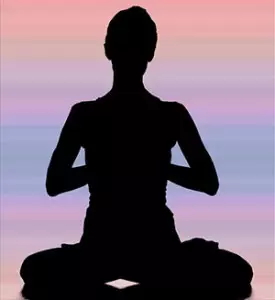
Studies have shown that acupuncture treatments can reduce the frequency of hot flashes. As few as three treatments produced significant positive results, while a full course of treatment (at least eight sessions) provided relief for many women for up to six months. In addition to relieving hot flashes, acupuncture also improves quality of life in many other ways: reducing headaches and other body aches, alleviating anxiety and depression, and improving sleep. TCM also offers customized herbal formulae that support the body’s hormone balance and help with menopause symptom relief. In many ways, the effects of perimenopause and menopause are not quantifiable, as some are more emotional in nature. This change occurs not just in the body, but in the mind. At this time, a woman is seeing herself differently, reevaluating her own sense of identity and purpose, and in some cases, shifting her focus and energies in life.
Acupuncture for PMS Symptoms and Menopause
Physically, a woman goes through many significant changes over the years, and different factors come into play. If a woman’s body is out of balance — due to trauma, stress, illness, injury, diet, environment, etc.–she may experience difficulties with her female organ function. Painful periods, irregular periods, cysts, fibroids and endometriosis are all common conditions — but they do not happen without some imbalances causing them. A lifetime of choices, experiences, pains and pleasures add up to create the health status we live with now, in this moment.
Women’s health issues can be addressed, at any stage of life, with acupuncture and herbs, as well as the right kind of food and lifestyle choices. If a woman finds and partners with a good healthcare practitioner, and practices a lifestyle that helps her achieve optimal health, she does not have to suffer through years of PMS, unpleasant symptoms during pregnancy like morning sickness, nor through years of menopausal symptoms, either. Unfortunately, many women do not know there is an alternative to using pain relief medicines, oral contraceptives and hormone replacement to manage symptoms. These drugs do not offer a real solution to the problems; they mask them. As women, we are often expected to simply accept these problems and learn to cope. But why settle for that, when we have the means to correct them?
What is a Natural Remedy for Hot Flashes? Acupuncture and Menopause Supplements
TCM looks at female care as “ovarian care.” Besides paying attention to our liver, heart, lungs, and kidneys, we also focus on menstrual and premenstrual care, pregnancy and postpartum care, and menopause care. These are unique to women. The ovaries are the major players when it comes to female hormones, cycles, and reproductive health. Girls, young women and older women can all benefit from regular treatment, herbal supplementation, and lifestyle improvements to encourage healthy and smooth functioning of these processes. If, as a younger woman, you are able to manage your hormones, then, when menopause comes, it hopefully will not be too much of a problem. If you are already experiencing menopause symptoms, it is not too late to get Yin and Yang balance restored, so that you can enjoy this phase of life and many healthy years to come!
According to TCM, most menopausal disorders fall under kidney and/or liver Yin deficiency. This manifests in hot flashes, waking often at night around 3:00-4:00 a.m., dreamy light sleep, irritability, memory loss, dry eyes, mood swings, and irregular periods. A smaller percentage of symptoms fall under kidney Yang deficiency; low back soreness, incontinence, water retention, fatigue, indigestion, and weight gain. We use very specific acupuncture points to help with each of these different problems, and are able to treat each woman’s unique combination of issues. We also have our unique techniques (needling and massage) and herbal products to help skin stay firm and smooth.
8 Self-Care Best Practices for Menopause

Acupuncture and herbal modalities have been taking care of these women’s health issues for thousands of years. Besides seeking these professional services, there are many things you can do at home to facilitate a smooth transition:
- For Yin deficiency, stick with cooling and juicy foods like fresh veggies, fruit, yams, sweet rice, mung beans, lotus roots or seeds. Stay away from alcohol, coffee, and spicy foods which increase internal fire or heat. Snacking on Goji berries is recommended, drinking chrysanthemum tea, chamomile tea or Art of Wellness’s own Night Tea can help you rest and sleep better.
- For Yang deficiency, drink warm lemon water upon rising, eat more cooked and warm food, nuts, especially walnuts and pecans, stay away from dairy, icy foods and drinks and greasy, heavy meals. 20-30 minute hot foot spa before bedtime is recommended. Rub the low back along the midline of the spine and on both sides until very warm.
- For saggy or loose skin, facial rejuvenation acupuncture needling will help stimulate collagen production and improve facial circulation.
- Speed-walk 30-45 minutes per day.
- Rub hands to warm them, then rub the soles of each foot 100 times. Practice daily.
- Meditate 20 minutes daily, in the morning or ideally, at bedtime.
- Suggested Menopause Meditation: focus on the lower abdominal area (Dan Tian), until it feels warm. Then, move the warm sensation into your kidney area.
- Try this Lotus smoothie recipe. Good for anyone, but especially for women experiencing menopausal symptoms: ½ cup lotus seed, ½ lily bulbs, 1 tablespoon mung beans, 1 tablespoon sweet rice, 10 pieces of honey dates. Rinse all ingredients but dates. Add 6 cups of water, cook for 20 minutes. Blend. Garnish with a few goji berries. Make 4 servings. Serve warm for breakfast, or cold for an afternoon snack. Feel free to add fruit, such as banana, berries, apple, pear, etc.
If you or a woman you care about is experiencing menopause symptoms, look for acupuncture near me, and call Art of Wellness, Santa Monica, Los Angeles, CA. Our clinic is one of the top 19 pick among 825 similar clinics in the great Los Angeles area. Our doctors have over 30-years experiences of practicing TCM and acupuncture. Dr. Cai is a specialist in all women’s health issues.
*This article is for education from the perspective of Traditional Chinese Medicine only. The education provided by this article is not approved by FDA to diagnose, prevent, treat and cure human diseases. It should not stop you from consulting with your physician for your medical conditions. Traditional Chinese Medicine is based on Qi, which is an invisible force that usually cannot be observed by modern science. Because science focuses on testing ideas about the natural world with evidence obtained through observation, these aspects of acupuncture can’t be studied by science. Therefore acupuncture and Chinese herbs are often not supported by double-blind, randomized trials, and they are considered alternative medicine therapies in the United States.
TCM and Seasonal Affective Disorder

Seasonal Affective Disorder, also known as SAD, is a form of depression that affects people all throughout the world. Most commonly experienced during fall and winter months, the symptoms of SAD include depression, hypersomnia, lethargy, difficulty concentrating, negative thoughts and decreased social interaction. Higher levels of anxiety are experienced at the end of the summer season as those who suffer from this ailment start to anticipate the coming months of less sunshine and increased symptomatology. continue reading
Who’s Pushing Your Buttons?
By Qineng Tan, L.Ac., Ph.D.
Everybody wants to be happy. But, who is in control of your feelings? You? Somebody else? Life itself?
Once, I had just flown back to L.A. After waiting in a long line, I managed to get a taxi.
When I got in, the driver asked, “Where to, sir?” He sounded nervous.
“Santa Monica.”
“OK! That’s better,” he said, pleased.
“Why?” I asked.
“This morning, I’ve been driving around and around the airport. Finally I had one customer. I asked him where he was going, and he says, ‘Manchester.’ That was it! It made me so sad.”
I was laughing. “Oh, I see. So you have two buttons in your heart? One is for happy, and one is for sad? The passenger who goes to Manchester pushes the sad button, which makes you unhappy, then the one who goes to Santa Monica pushes the happy button and makes you happy for the rest of the day?”
The driver smiled. “Yeah! Isn’t that interesting?”
Just like the cab driver, most people allow their emotions to be controlled by people and events outside themselves. They go through life being very careful not to let anybody touch their sad buttons. When the button is pushed–the boss gets angry, the kids won’t listen, or the traffic is terrible–there seems to be no choice but to react negatively.
This reminds me of a story. A monk who loved Chinese Orchids had planted one in a pot and raised it for many years. When he had to go on a trip, he asked one of his students to take care of the plant. The day before the monk returned, the student, who had been caring faithfully for the flower, accidentally dropped the pot, and the orchid died. The student felt awful and approached the monk fearfully to apologize.
But the monk said, “I raised the orchid because it gave me joy. Why would I be sad or angry now that it is gone? Why turn all my happiness to sorrow?”